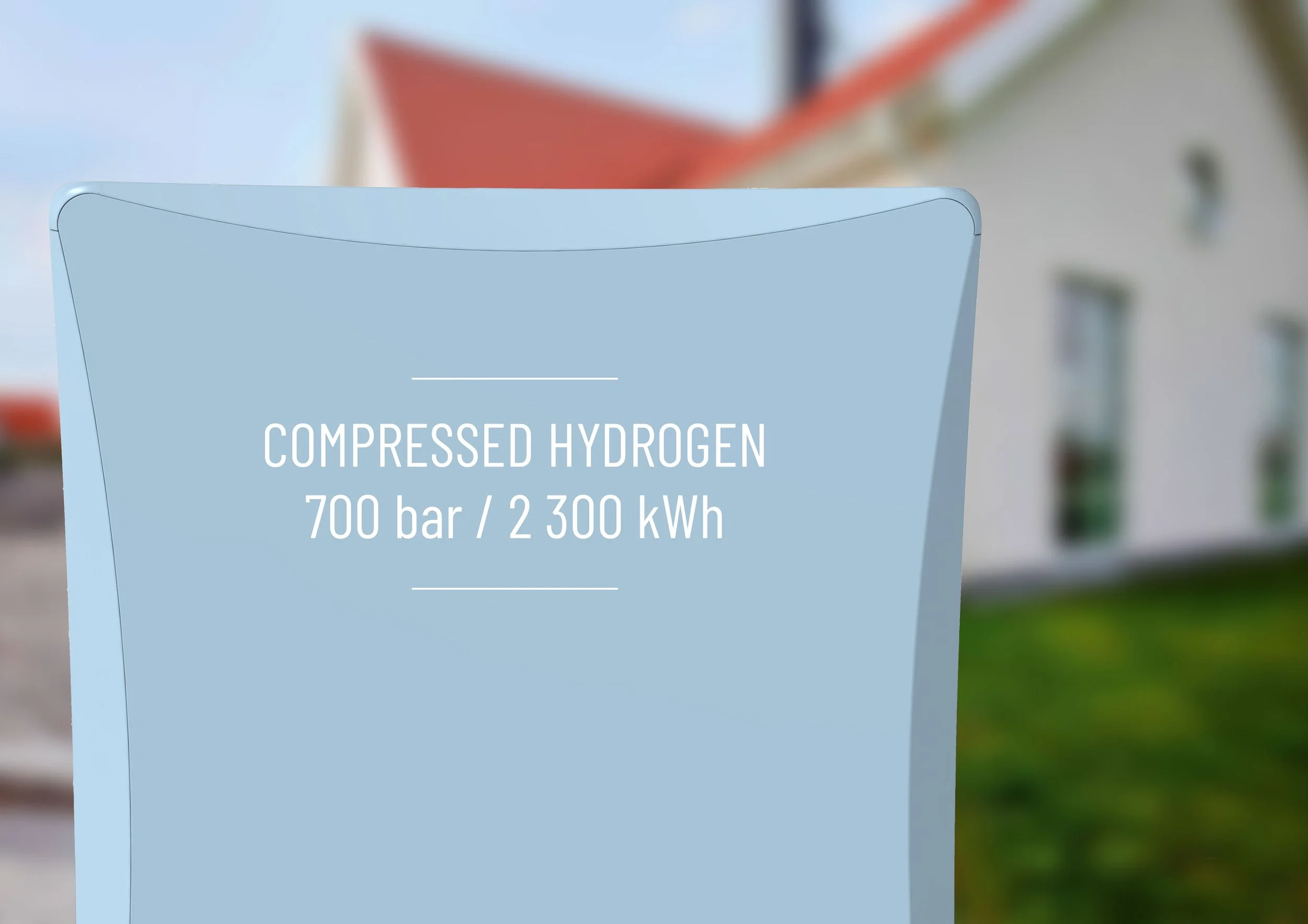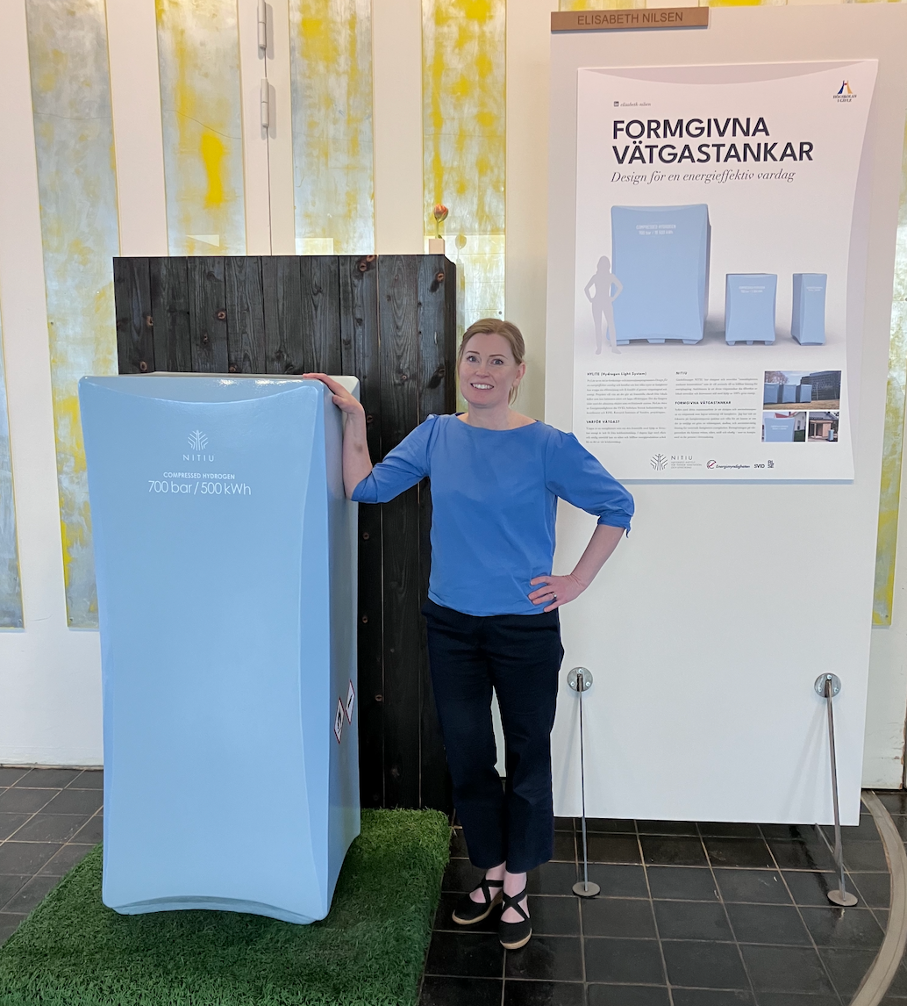
How important is the design of
hydrogen storage solutions?
Who cares what they look like?
Storage of hydrogen is a central part of the energy system of the future. Do we need to care about how they look?
Yes, definitely! To increase people's acceptance, there is great value in doing so. Elisabeth Nilsen has written her thesis on how to design user-friendly and well-functioning hydrogen tanks for different types of properties. She has based her work on psychological research, design models, a survey and interviews. When the thesis is published, we will link to it, but here is a sneak peek of her work and findings.
As a warm, giving friend
One finding is that hydrogen tanks should be designed to blend in easily. Good design is often not noticed; it just works and feels natural. To reach public acceptance, they should feel like a warm hug, or like a good friend who brings joy.
Color is another important factor to consider - different colors generate different feelings and behaviors.
Design definitely affects the perception of hydrogen. Is this something threatening or something that brings me warmth and a nice feeling?
Elisabeth therefore chose a light blue, calming color for her design.
Vernissage
On 26 May, The industrial Design Program at the University of Gävle opened a vernissage, where the graduating students presented their degree projects to the public.
Here, Elisabeth Nilsen presents her findings and design of a friendly hydrogen tank in size 1:1.
HyLite
Her thesis is part of NITIU's contribution to HyLite (Hydrogen Light Systems), a project that aims to create a robust, fossil-free, local energy system based on hydrogen.
Awareness is increasing
Hydrogen has long been used in industry around the world. With the development of fossil-free steel and frequent press coverage, the awareness increases, which also makes people more keen on using hydrogen.
– Most people don't think of disasters when they hear the word hydrogen anymore, but it’s clear that we need even more information to further increase the acceptance, says Elisabeth.







